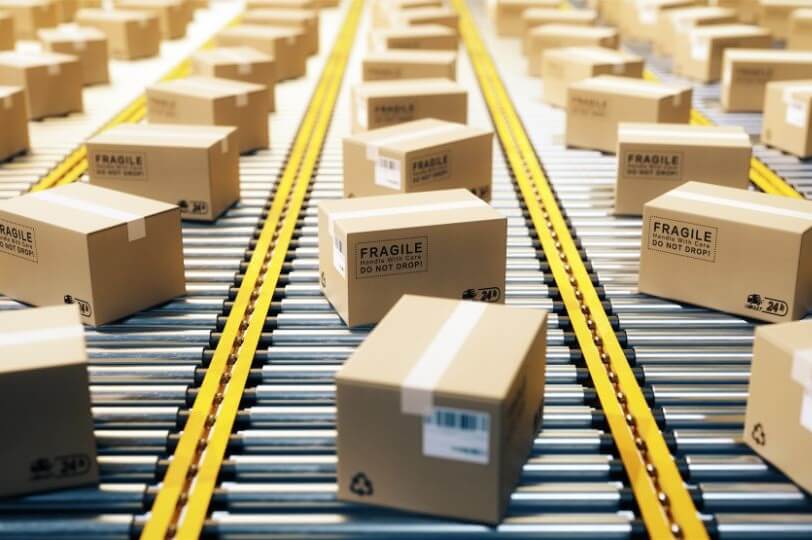Europe is a complex continent. Its 28 member countries are home to more than 500 million people and generate a GDP of over $16 trillion. Not to mention, it’s a hub for global trade with a network of seaports, airports, and railroads that connect it to the rest of the world. With all of this complexity, it’s no wonder European logistics can be challenging. But despite the challenges, there are also many opportunities for those in the logistics industry. In this blog post, we will explore the challenges and opportunities of European logistics. From the impact of Brexit to the rise of e-commerce, read on to learn more about what’s shaping the future of logistics in Europe.
The Development of the European Logistics Industry
The European logistics industry has undergone significant development in recent years. Several factors have contributed to this, including the growth of online retail, the expansion of global trade, and the increasing complexity of supply chains. As a result, the demand for logistics services has grown significantly, and the industry has responded by investing heavily in infrastructure and technology.

Today, the European logistics industry is highly competitive and sophisticated. Large, well-capitalized players with access to the latest technologies and best practices characterize it. The sector also faces rising costs, labor shortages, and Brexit. Despite these challenges, the European logistics industry continues to grow and evolve, providing an essential service to businesses and consumers across the continent.
The Impact of Brexit on European Logistics
The vote by the United Kingdom to leave the European Union has created uncertainty for businesses operating in Europe, and nowhere is this more keenly felt than in the logistics sector. With supply chains crisscrossing borders, businesses rely on a smooth flow of goods and services to keep them running. So, what does Brexit mean for European logistics?
There are several potential impacts of Brexit on European logistics. Firstly, there is the issue of customs. Presently, goods moving between EU countries benefit from ‘customs duty exemption’ – meaning they can move freely without incurring tariffs. However, once the UK leaves the EU, this will no longer apply to trade between the UK and EU member states. This could lead to delays at borders as goods are subject to customs checks and increased paperwork.
Another potential impact is on drivers’ hours’ rules. Currently, drivers working for UK-based companies can drive in other EU countries using their UK license and following UK driving regulations. However, once the UK leaves the EU, this may no longer be possible, meaning that UK-based drivers would need to obtain an international driving permit (IDP) to drive in other EU countries. This could create additional costs and bureaucracy for businesses that rely on cross-border haulage.
Finally, there is the issue of exchange rates. The value of sterling has fallen since the Brexit vote, making imports into the UK more expensive.
The Role of Technology in European Logistics
Technology plays a vital role in European logistics, enabling businesses to manage their supply chains more effectively and connect with customers in new ways. The biggest challenge for logistics companies is keeping up with the latest technology trends and ensuring their systems are future-proof.
Adopting new technologies is essential for logistics companies to remain competitive. However, with so many different options available, deciding which technologies to invest in can be difficult. The key is to identify the areas where technology can impact your business and then make sure you have a clear plan for how to implement and use these tools.
Some of the most popular technologies being used in European logistics include:
1. GPS tracking: GPS tracking systems are used by many logistics companies to track vehicles and shipments in real time. This information can be used to improve routing and delivery times and provide valuable data for customer service and marketing purposes.
2. Warehouse management systems: Warehouse management systems (WMS) help businesses optimize their stock levels and inventory management processes. A good WMS will also allow businesses to track shipments and orders throughout the supply chain, from initial receipt to final delivery.
3. Transportation management systems: Transportation management systems (TMS) are used by logistics companies to plan and optimize their transportation operations. TMS software can help businesses choose the most efficient routes, schedule deliveries, and track vehicles and shipments throughout the transportation process.
Over the past few years, European logistics has undergone many changes and challenges. However, despite these challenges, there are still many opportunities for those involved in logistics to improve their operations and make the most of the current market conditions. By staying up-to-date with the latest trends and developments, logistics companies can ensure that they are well-positioned to take advantage of these opportunities and continue to grow.
SHAOKE: A Company Tackling All Obstacles!
Logistics is a critical component of any business, but it becomes even more complex when operating on a European scale. SHAOKE is a company that specializes in logistics management, and they have proven themselves time and again to be experts in the field. From GPS tracking to transportation management systems, SHAOKE has the tools and experience to tackle any possible obstacle.
What sets SHAOKE apart from other logistics companies is its focus on customer service. They understand that each client has unique needs and work diligently to create custom solutions that fit those needs perfectly. Regardless of your business’s challenges, you can rest assured that Shaoke will find a way to overcome them.

